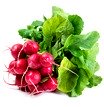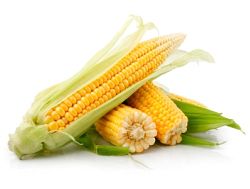Vegetable Nutrition Facts
Sure, you know veggies are good for you, but maybe some specific vegetable nutrition facts could be useful as well. For example, what will those colorful critters from the Plant Kingdom give you (if you actually eat them), and which ones will give you the most? Just for starters, you can expect vitamins and minerals, enzymes, and fiber. Although we
may never be able to make veggies actually sexy, they can be awfully good company.
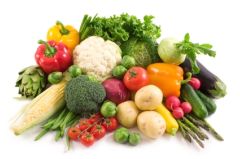
Vitamins
From veggies, the principal vitamins we often expect are A, C, E, and K. Although many veggies provide these, some yield more than others. So, to keep things simpler, I’ll note primarily the richer sources.
Vitamin A. For this vitamin, bring the orange veggies into your kitchen, as well as cabbage, tomatoes, many of the leafy greens (notably cabbage, collard greens, leaf/romaine lettuce, and spinach), and red bell peppers.
Vitamin C. Bell peppers, broccoli, Brussels sprouts, green cabbage, cauliflower, okra, onions, prickly pears, radishes, rutabagas, summer squash, sweet potatoes, and tomatoes are the primo actors for this one.
Vitamin E. To find E-rich veggies, look particularly to certain green and leafies: spinach and Swiss chard; beet, turnip, and mustard greens; kale, broccoli, and parsley; and asparagus. Avocados are often named, as well.
Vitamin K. As with Vitamin E, for veggie sources of this important vitamin, focus on the green and leafies.
Vitamin D. With the notable exception of sun-dried shitake mushrooms, veggies generally don't yield much Vitamin D. But you can find it from other sources, even if you're vegetarian or vegan.
Minerals
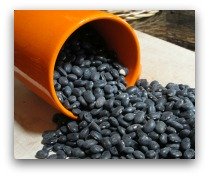
Among the minerals many veggies can provide, you'll find three heavy-hitters: potassium, magnesium, and calcium.
Potassium. Top producers of this vital mineral are pink beans, large limas, and small white beans. Other dried legumes produce well, also: cannellini beans, chick peas, lentils, small lima beans, split peas, pigeon peas, and pinto beans. Among the higher producers in the “freshie” realm, you’ll find potatoes/sweet potatoes and tomatoes.
Magnesium. Best veggie sources here include pinto beans and spinach. Also good are artichoke hearts, beet greens, butternut squash, and several beans we generally buy in their dried form: black beans, chick peas, white beans (such as cannellini, Great Northern, navy), lentils, lima beans, red kidney beans, and soybeans. And let’s don’t forget (shudder) okra.
Calcium. For a veggie source of calcium, some of us lean fairly heavily upon spinach. But other good sources include beet, collard, and turnip greens, broccoli raab, cowpeas (aka blackeyed peas), edamame, and (again!) okra.
Enzymes
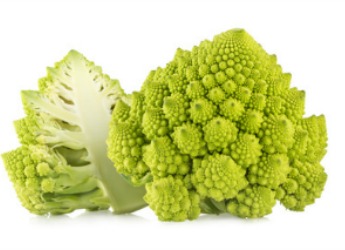
Veggies bring other good things to the party, too: like enzymes, for example. And why should you care about those?
For one thing, because the amylase in fruits and vegetables helps your body digest carbohydrates and starches. When it can't properly do so, your blood sugar and weight management can take quite a hit.
You need lipase as well, which helps the lower intestine actually absorb the nutrients from the food you eat. Fortunately, the minerals and vitamins in fruits and vegetables aid the functioning of the pancreas, where lipase is created. Looking good so far...
Plenty of Fiber...Not So Many Calories
Veggies also provide dietary fiber, reputed to help lower your
risk of diabetes, heart disease, diverticulitis, and constipation.
Jicama, spinach, broccoli, and artichokes score particularly high for
fiber, followed by corn and sweet potatoes.
"But wait, there's more!"
Consider as well that vegetables
tend to be lower in calories when compared with many other foods. Nor
will you see a lot of fat and cholesterol in veggies, either, unless you
add these yourself with the butter, cheese, and oil with a heavy hand.
(Just a reminder, okay?)
And there you have it: just a few benefits of the green and leafies and
other veggies. For more in-depth information, visit the good folks at
Fruits and Veggies—More Matters: vegetable nutrition facts. In the meantime, remember to chew!
Please understand that the material at this site is NOT medical advice, as I am neither doctor nor nutritionist. What I am is merely someone who's lived successfully on a vegetarian diet for many decades...and I transitioned from omnivore to vegetarian gradually. Do check with your doctor, though, if you're considering big changes to your own diet. Also, be sure to find a dependable source of Vitamin B12.
Living Vegetarian the Easy Way
Copyright 2010-2024. Lynda Edwards. All rights reserved.
